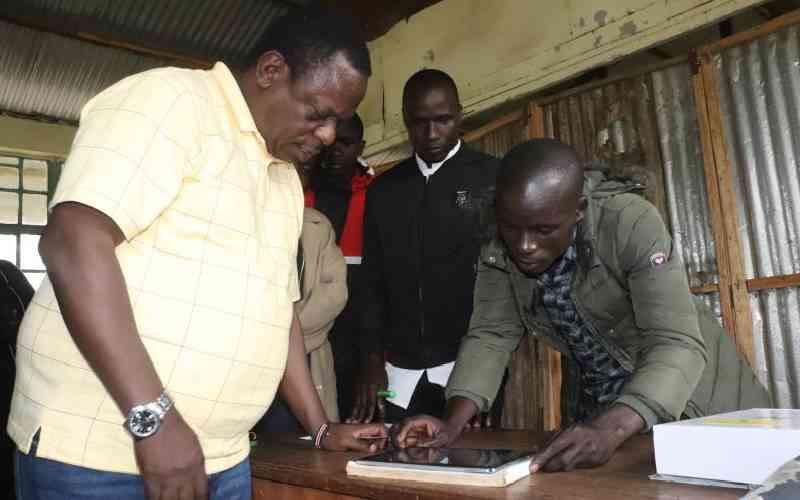×
The Standard e-Paper
Stay Informed, Even Offline

United Democratic Alliance's (UDA) grassroots elections were marred with technological hitches as some leaders failed to cast their votes.
Nairobi Governor Johnstone Sakaja's name, alongside those of Dagoretti South MP John Kiarie and some MCAs, could not be recognised by the election gadgets, a move that locked out the leaders from participating in the ruling party's historic electronic voting.







